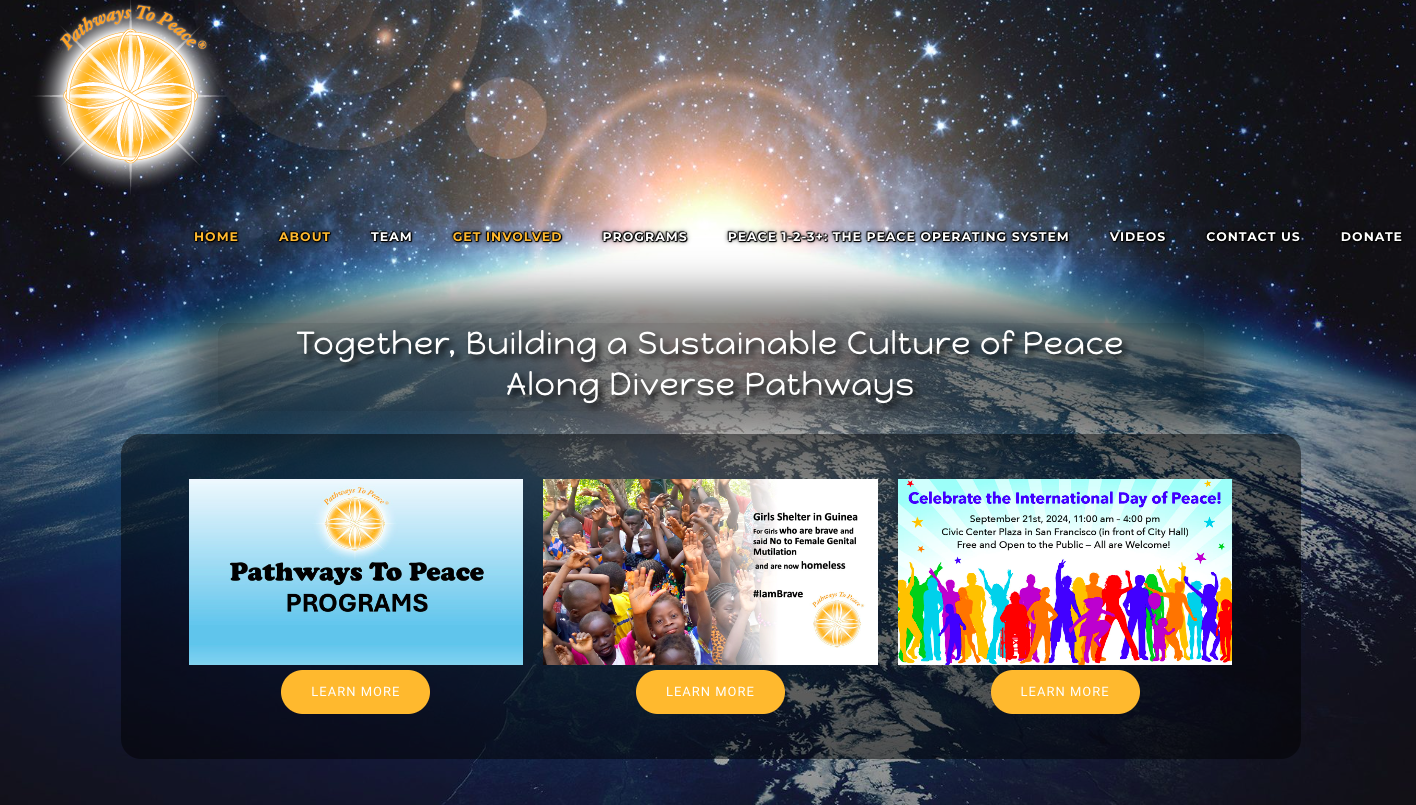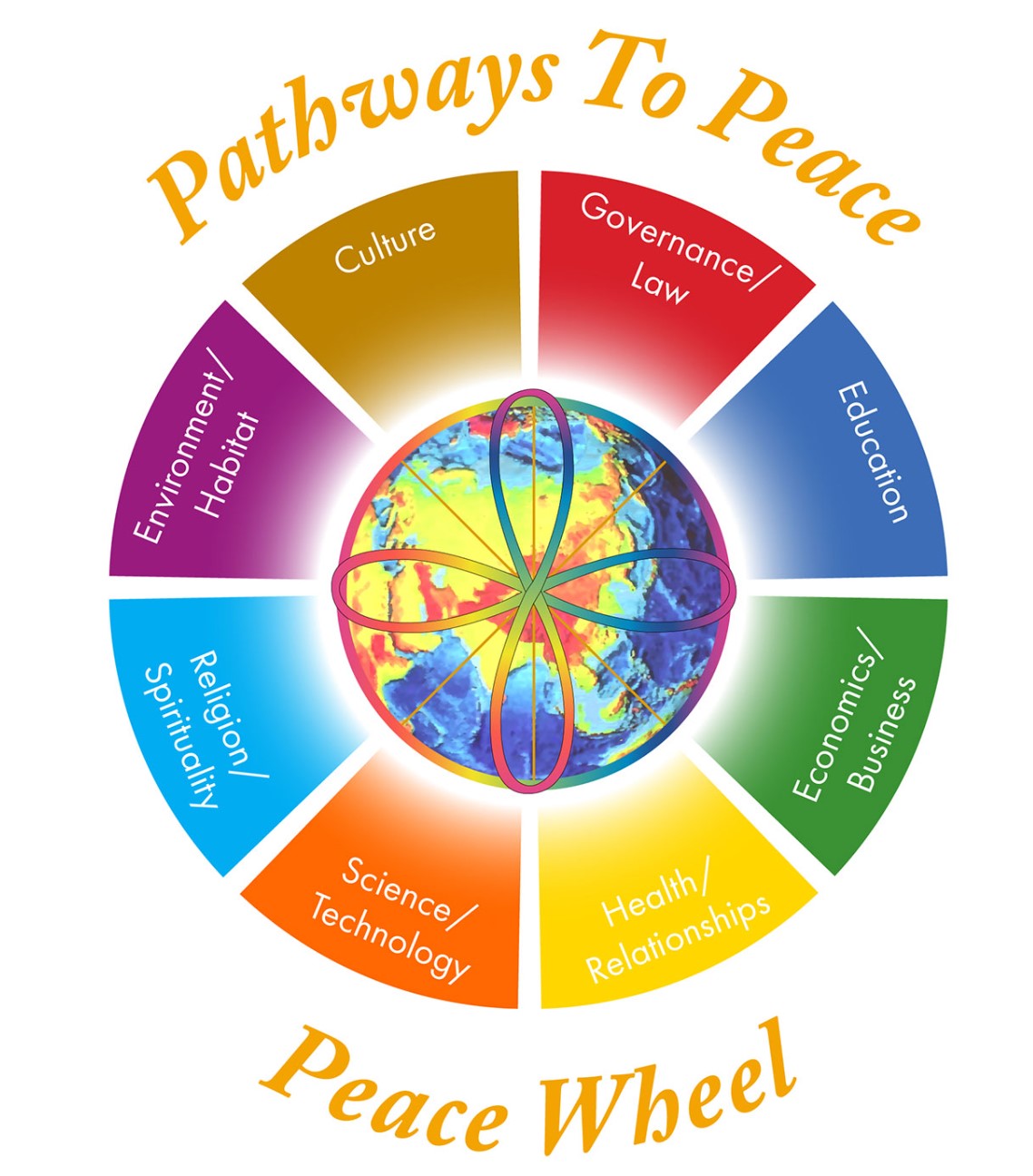Pathways to Peace
- St. Paul, USA
- International
- Education & Training,
- Consulting & Advisory,
- Advocacy & Activism
- Relations & Peace
1978
11-20

Organization information
Pathways To Peace expands the understanding and expression of Peace, fosters Peacebuilders and Peacebuilding activities, and builds an integral movement for a Culture of Peace.
Pathways To Peace (PTP) is an international Peacebuilding, educational, and consulting organization. For over four decades, PTP has been actively making Peace a lived reality. PTP is an UN-designated Peace Messenger Organization and has Consultative Status with the United Nations Economic and Social Council (ECOSOC). PTP works locally and globally, inter-generationally and multi-culturally, to support Peacebuilding, Peacebuilders, and to collaborate with other organizations in initiatives that advance the Culture of Peace Initiative (CPI).
Since its inception in 1981, PTP has worked with the UN to expand awareness of and engage in the International Day of Peace (Peace Day), which is held annually on September 21st. Peace Day has grown from a single event of a few hundred people into a global movement that reaches hundreds of millions of people. Peace Day, as established by unanimous United Nations resolution in 1981, provides a globally shared date for all humanity to commit to Peace above all differences and to contribute to building a Culture of Peace. http://internationaldayofpeace.org
Key people
https://pathwaystopeace.org/team/
Theory of Change
“Peace is both an innate state of being and a dynamic, transformative, and evolutionary process.”
This is how PTP defines Peace. Peace begins within, and as others discover inner Peace, they will radiate Peace and engage in a Peaceful way of life.
THE PEACE WHEEL© is a model for Peacebuilding, developed by Pathways To Peace and activated over the last 25 years. It consists of eight sectors, or pathways, that are interconnected and that symbolize different pathways. The 8 pathways recognize and engage all people as peacebuilders. These pathways transcend national, ethnic, racial, religious, age, identity, or gender differences; they are common to every society:

You can click on each of the sectors of the Peace Wheel to read more on their website: https://pathwaystopeace.org/